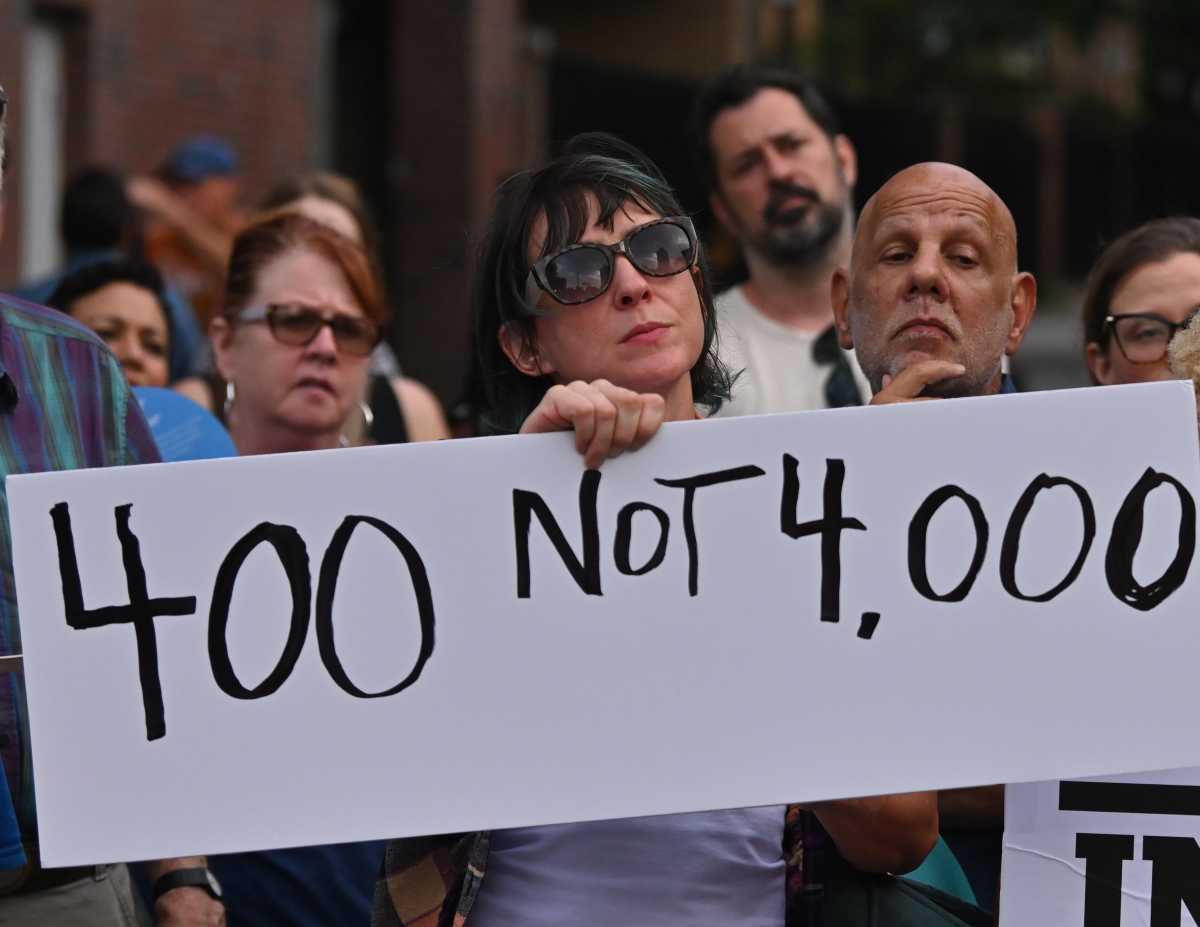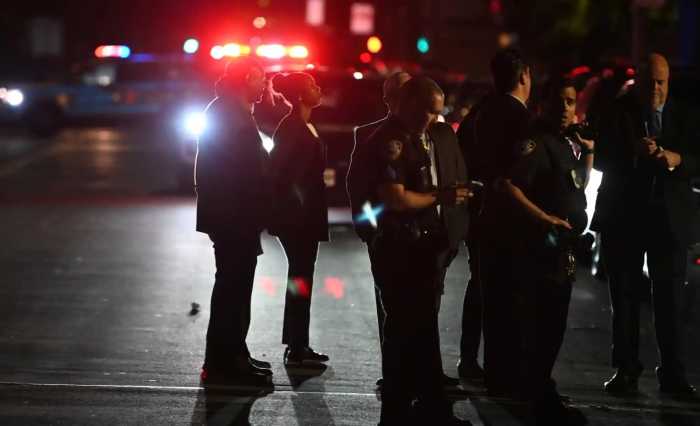Community members in Clinton Hill and neighboring Fort Greene are seeing red after back-to-back shootings near a crowded migrant shelter on Sunday night.
The carnage began when the first victim, 30-year-old Arturo Jose Rodriguez-Marcano, was fatally shot in the chest near the Steuben Playground at the corner of Flushing Avenue and Steuben Street across from the Brooklyn Navy Yard at about 11:44 p.m. after an argument. Minutes later, his suspected killer opened fire outside a migrant shelter a few blocks away, at 29 Ryerson St., fatally shooting 21-year-old Enny DeJesus Urbina Mendez and critically injuring a 59-year-old man.
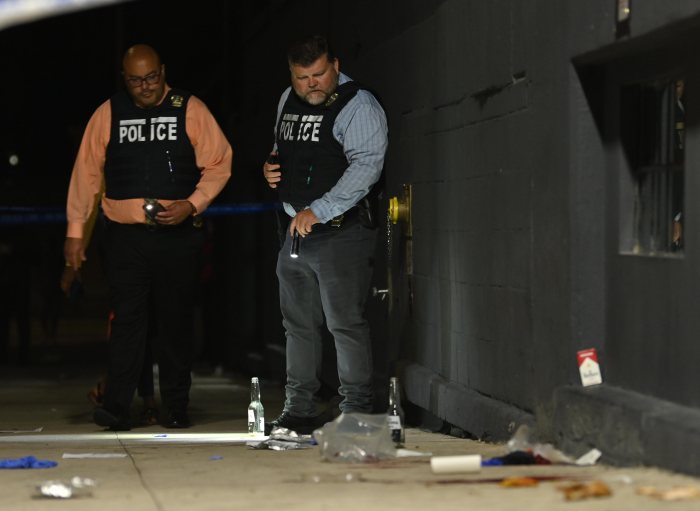
Police initially believed the incidents were unrelated, but are now searching for a man caught on surveillance video they now believe is responsible for both July 21 shootings.
The shootings were unsurprising to some locals, many of whom said they have been protesting the neighborhood’s 3,000-person men’s-only shelter on Hall Street for a year, citing safety concerns due to its size. The 387-bed shelter on Ryerson Street, where Urbina Mendez was shot, opened earlier this year, further exacerbating existing issues in the nabe.
“These shelters are too big to be safe for both the residents and the community trying to welcome them,” one nearby resident said at a July 23 rally near the corner of Myrtle and Hall streets.
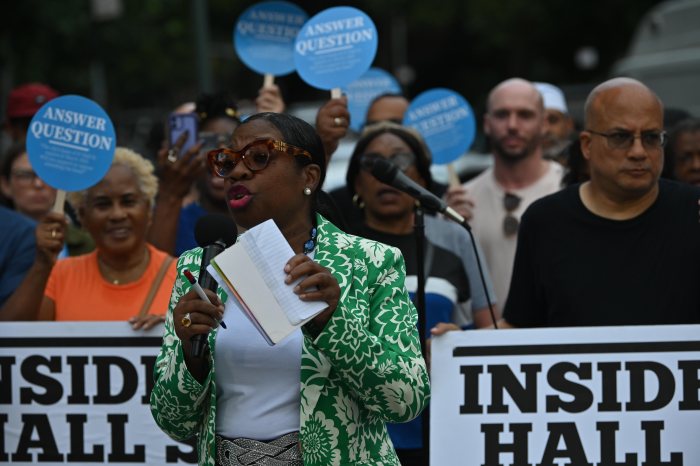
Shelter residents have said the facility is crowded and conditions are poor. New rules implemented this spring mean most adult asylum-seekers can only stay in shelters for 30 days. A number of men who have been forced to leave the shelters in Clinton Hill have been sleeping in nearby parks, including at Steuben Playground.
Community members claim they have received little to no support from city officials, such as Mayor Eric Adams and Council Member Crystal Hudson. Locals further assert that crime, theft and violence are rapidly increasing in the area — and that they’ve had enough.
To address it, local resident Tim Wolf that the city should focus on building more shelters, “instead of cramming 4,000 people” into one.
“This isn’t working like they envisioned. These people need help,” another protester added. “Hopefully someone at City Hall makes this change.”
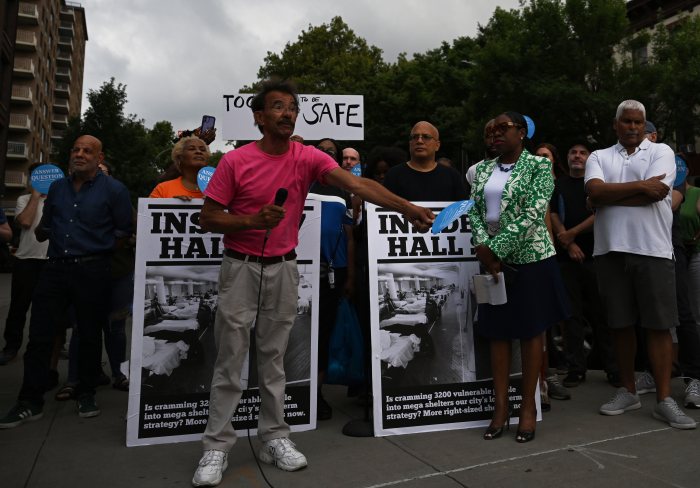
In an open letter to Mayor Eric Adams, Hudson said in May that her community has received “no material support” from City Hall since the shelters opened. Thousands of new neighbors crammed into a small space means more trash, more “neighborly disputes,” and more use of city facilities like Parks, Hudson wrote, and the nabe needs more funding and support services.
As of July 14, Clinton Hill’s 88th Precinct had only seen one homicide and two shootings this year, according to Police Department data.
In a statement Tuesday, a spokesperson for Hudson said their office had been told that the third victim — still unidentified by police — is believed to be a resident of the Hall Street Humanitarian Emergency Response & Relief Center.
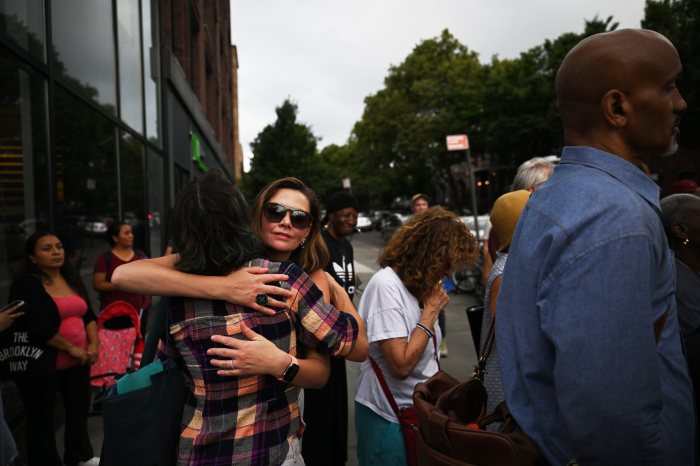
“Our office remains in communication with the Mayor’s Office and the NYPD as the investigation unfolds and have been informed that there will be additional law enforcement presence in the area,” the spokesperson said. “We mourn this senseless loss of life and remain committed to fighting all gun violence across our city.”
The mayor’s office did not respond to a request for comment. According to Gothamist, when asked about the shelters at a press briefing on Tuesday, Adams said the city is “out of room” for migrants and shelters.
“Which community should I move it in? Those who are already oversaturated? Or should we all share the burden of this? No one wants this,” he said.
Nearly 200,000 migrants have moved through New York City’s shelter system since 2022, and the city has opened more than 200 shelters to house them — including at least 17 HERRCs, like the Hall Street shelter. More than 65,000 migrants slept in city shelters during the month of June, according to a census maintained by the city Comptroller.
Additional reporting by Dean Moses and Kirstyn Brendlen



